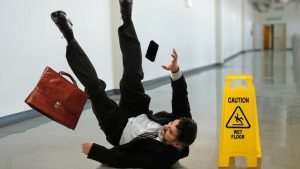Protect Yourself as a Landlord – What do I do if someone is injured?
10 Inspection and Maintenance Tips for your Fire Sprinkler System in Winter and Cold Weather
February 1, 2019Three Key Good Housekeeping Practices for Commercial Property Managers
September 9, 2019This is the seventh article that provides some insight for landlords and owners regarding insurance issues as it relates to your property. Knowing these facts will help you to protect your asset as well as yourself in case of unforeseen occurrences. Be smart and be safe – it’s the right thing to do.
Disclaimer: These articles are intended to raise questions to review with your insurance provider or legal advisor. This article is not an insurance sales solicitation, legal advice or to be considered a comprehensive evaluation of all tenant risks.
Provided by Sterling Insurance Associates Ltd. – a consulting company
What do I do if someone is injured?
Offer assistance, call for Medical Attention, assist in preventing further injury, without risking injury to yourself or others.

What do I do if someone is injured?
Why?
Reducing injury and acquiring prompt treatment to others can significantly reduce the magnitude of injuries, which reduces human suffering and ultimately reduces the Tenants’ maintenance costs.
Provide Immediate Medical Attention
- Providing immediate medical attention is not an admission of liability or responsibility
- The Landlord’s and Tenants’ Liability Policy normally provides coverage for Medical Payments to other people injured by accident on the premises, regardless of fault
Collect Available Information
- Log the event
- Complete incident report
- Identify where the incident happened
- Identify who was injured
- Who was the injured person visiting at the premises, which Tenant?
- Are there any witnesses – who are they and how to contact them
- Take photos or videos of scene
- Preserve evidence
- Write down step by step what happened and what you saw
- Are there any surveillance cameras in the area, preserve the recordings?
- Does anything need to be done to prevent a further incident?
Read further insurance articles
